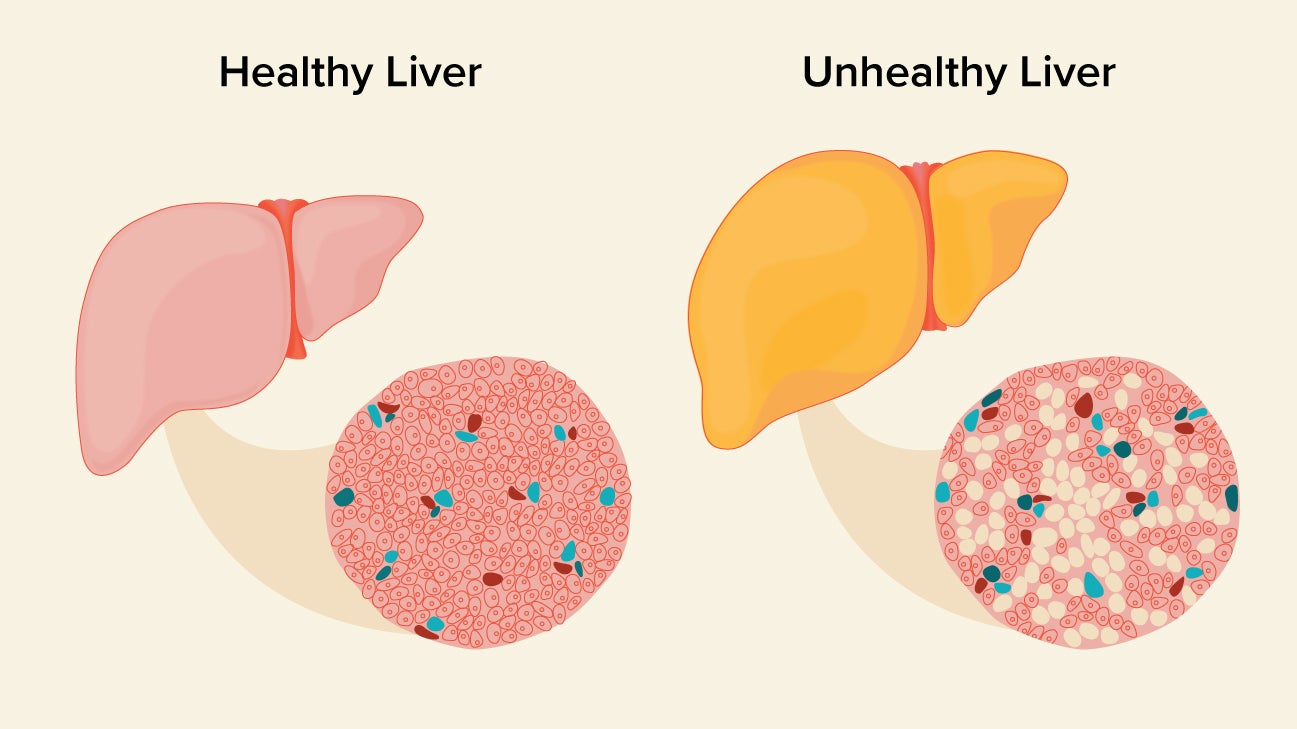
Gut Health and Fatty Liver: The Functional Medicine Connection

Gut Health and Fatty Liver: The Functional Medicine Connection
Introduction
Fatty liver disease has become one of the fastest-growing health concerns globally, affecting millions of people, many of whom don’t even know they have it. While conventional medicine often focuses on managing symptoms and monitoring liver enzymes, functional medicine takes a deeper look at the root causes of fatty liver.
One of the most overlooked yet critical connections is between gut health and liver health. The two are closely linked through what scientists call the gut-liver axis. Imbalances in the gut, such as poor digestion, microbiome disturbances, or leaky gut, can directly contribute to the development and progression of fatty liver disease.
In this blog, we’ll explore the science behind the gut-liver connection, why it matters for fatty liver disease, and how functional medicine offers holistic solutions to restore health naturally.
What is Fatty Liver Disease?

Fatty liver disease occurs when excess fat builds up in the liver cells. There are two main types:
1. Alcoholic Fatty Liver Disease (AFLD): Caused by heavy alcohol consumption.
2. Non-Alcoholic Fatty Liver Disease (NAFLD): Occurs in people who drink little to no alcohol, often linked to poor diet, obesity, insulin resistance, and gut health issues.
NAFLD can progress to NASH (Non-Alcoholic Steatohepatitis), where liver inflammation and scarring occur, eventually leading to cirrhosis if not managed.
The Gut-Liver Axis: How the Two Organs Communicate

The gut and liver are directly connected through the portal vein, which carries nutrients, toxins, and microbial by-products from the intestines straight to the liver.
When the gut is healthy, the liver receives balanced nutrients and minimal toxins. But when gut health is compromised, the liver becomes overloaded.
Key ways gut health impacts the liver:
- Leaky Gut Syndrome: When the gut lining becomes permeable, toxins, bacteria, and food particles can leak into the bloodstream and overload the liver.
- Dysbiosis (Imbalance in Gut Bacteria): An unhealthy gut microbiome produces inflammatory by-products that damage liver cells.
- Endotoxins (LPS): Harmful compounds from bad gut bacteria can trigger chronic liver inflammation.
- Nutrient Absorption Issues: Poor gut health means the liver may not receive the nutrients it needs to detoxify and regenerate.
Functional Medicine’s Perspective on Fatty Liver

Instead of just looking at high liver enzymes or ultrasound reports, functional medicine practitioners investigate WHY fat is accumulating in the liver. The gut-liver axis plays a central role in this assessment.
Functional medicine typically explores:
- Gut microbiome health
- Digestive enzyme function
- Food sensitivities and intolerances
- Presence of leaky gut or chronic inflammation
- Nutritional deficiencies (B vitamins, choline, omega-3s, antioxidants)
- Blood sugar regulation and insulin resistance
By addressing these root causes, functional medicine doesn’t just manage fatty liver – it works toward reversing it.
Gut Health Factors That Contribute to Fatty Liver
1. Dysbiosis (Unbalanced Gut Microbiome)
- A poor balance between good and bad bacteria can lead to inflammation.
- Studies show that people with NAFLD often have lower levels of beneficial gut bacteria like Lactobacillus and Bifidobacterium.
2. Leaky Gut Syndrome
- A “leaky” intestinal barrier allows endotoxins (like LPS) to enter the bloodstream.
- These endotoxins travel directly to the liver, causing chronic inflammation and fat buildup.
3. Poor Digestive Function
- Inadequate stomach acid, bile flow, or pancreatic enzymes can impair fat digestion.
- Undigested fats strain the liver and worsen fatty accumulation.
4. Insulin Resistance and Blood Sugar Imbalances
- Gut imbalances can worsen insulin resistance, a key driver of fatty liver.
- High sugar and carb intake feed harmful gut bacteria, making the problem worse.
Functional Medicine Solutions for Gut-Related Fatty Liver
1. Restoring Gut Microbiome Balance
- Use of probiotics and prebiotics to support healthy gut flora.
- Functional medicine may recommend foods like kefir, sauerkraut, kimchi, and resistant starch.
- Targeted probiotic strains can reduce inflammation and support liver detox.
2. Healing the Gut Lining
- Nutrients such as L-glutamine, zinc, and omega-3s help repair a leaky gut.
- Eliminating trigger foods (like gluten, dairy, or processed sugar) reduces irritation.
3. Improving Digestion and Nutrient Absorption
- Digestive enzymes or bile salts may be suggested for those with poor fat digestion.
- Functional medicine emphasizes whole foods rich in antioxidants and fiber.
4. Supporting Detoxification Pathways
- Liver-supportive nutrients: milk thistle, NAC, alpha-lipoic acid.
- Foods like leafy greens, garlic, and cruciferous vegetables enhance detoxification.
5. Balancing Blood Sugar and Insulin
- Low-glycemic, nutrient-dense diet with healthy fats and proteins.
- Time-restricted eating or intermittent fasting under guidance.
- Stress management and regular exercise for insulin sensitivity.
Functional Medicine Testing for Fatty Liver and Gut Health
Unlike conventional medicine, functional medicine uses advanced tests to uncover deeper imbalances:
- Comprehensive stool analysis (to check microbiome, pathogens, digestion).
- Food sensitivity testing.
- Organic acids test (metabolic health, gut by-products).
- Advanced liver panels (oxidative stress, nutrient status).
- Insulin resistance and blood sugar testing.
Lifestyle Strategies from Functional Medicine

- Eat whole, unprocessed foods rich in fiber.
- Include omega-3 fatty acids (salmon, flaxseeds, walnuts).
- Avoid refined sugar, fried foods, and processed carbs.
- Stay hydrated for optimal detoxification.
Lifestyle Modifications:
- Exercise regularly – brisk walking, yoga, strength training.
- Manage stress through meditation, journaling, or breathing exercises.
- Prioritize sleep to support liver regeneration.
Conclusion
The gut-liver connection is undeniable, when your gut is unhealthy, your liver pays the price. Functional medicine recognizes this relationship and offers a holistic, root-cause approach to reversing fatty liver disease. By healing the gut, balancing the microbiome, and supporting liver detoxification, patients can experience not just improved liver function, but better overall health.
At Midas Wellness Hub, we believe in addressing the whole person, not just the disease. If you’re struggling with fatty liver, our functional medicine approach can help uncover the root causes, heal your gut, and restore balance for long-term wellness.
